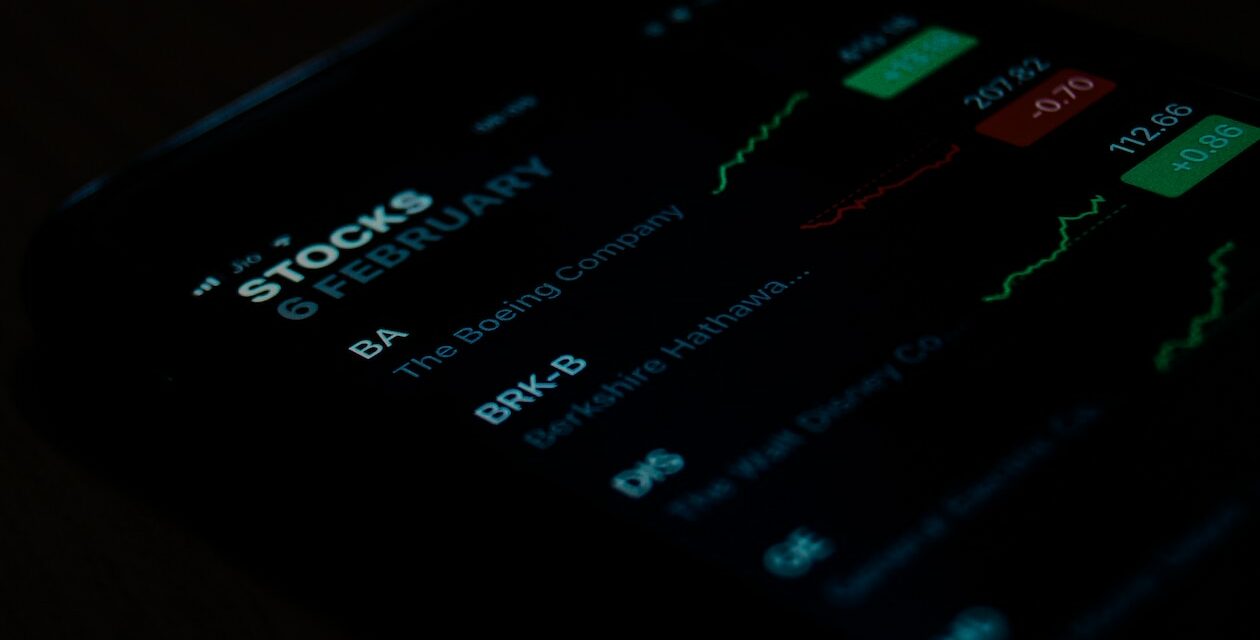
International Stock Trading – Best Foreign Stock Brokers.

International stock trading is a great way to diversify your portfolio and gain exposure to global markets. With the right foreign stock broker, you can access stocks from around the world and take advantage of the potential for higher returns. In this guide, we’ll discuss the best foreign stock brokers, the different types of international stock trading, and the risks and rewards associated with investing in foreign markets. With the right knowledge and resources, you can make informed decisions and maximize your returns.
International Stock Trading Overview
International stock trading is a form of investment where investors can purchase and sell stocks in companies located outside of their home country. This trading method enables investors to diversify their portfolio and gain exposure to various markets. Investors need to be aware of the different laws and regulations that govern the markets in each country, the various currencies used in each country, and the exchange rates between them.
They must also understand the tax implications of trading in different countries. Furthermore, investors must understand the different types of stocks available, such as those traded on international exchanges or their own exchanges. It is crucial to be knowledgeable about the various brokers available, as they can provide access to different markets and advice on which stocks to buy and sell. Additionally, brokers can offer research and analysis of the markets.
Finally, investors must understand the different fees associated with international stock trading, such as commissions, transaction fees, and other costs. Before investing in international stocks, it is essential to understand these fees and do thorough research on the different types of stocks and brokers available to make informed investment decisions.
Tax Implications of International Stock Trading
Understanding the different tax implications that come with international stock trading is essential for any investor looking to maximize their returns. Investors may be subject to different tax rates and regulations depending on the country in which the stock is traded.
The Internal Revenue Service (IRS) requires investors in the United States to report any income from international stock trading on their tax returns, including any dividends, capital gains, or other income earned from the sale of stocks. The tax rate for these types of income will depend on the investor’s filing status and income level.
In some countries, such as the United Kingdom, investors may be subject to a withholding tax on any dividends or capital gains earned from international stock trading, which is typically withheld at source. The rate of the withholding tax will vary depending on the country in which the stock is traded. In addition to the withholding tax, some countries may also impose a stamp duty on the purchase of international stocks. Stamp duty is a tax that is paid by the investor at the time of purchase and is typically a percentage of the purchase price. The rate of the stamp duty will vary depending on the country in which the stock is traded.
Finally, investors should be aware of any foreign exchange fees that may be associated with international stock trading, which are typically charged by the broker or financial institution that facilitates the transaction and can add up quickly. International stock trading can be a lucrative endeavor for investors who take the time to familiarize themselves with the various taxes and fees associated with it.
Types of International Stock Markets
The global economy relies heavily on international stock markets, which provide investors with a broad range of investment opportunities. There exist various types of international stock markets, each with its own unique characteristics and features. This article explores these different types and discusses their advantages and disadvantages.
The primary market is where companies issue new shares of stock to the public for the first time, using the proceeds from the sale to finance their operations and growth. The primary market is the most liquid and efficient of the international stock markets, as it is the first place investors can buy and sell shares of a company.
Investors buy and sell shares of stock that have already been issued by companies in the secondary market. While the secondary market is typically less liquid than the primary market, it is still an essential part of the international stock market, allowing investors to trade shares of established companies.
The over-the-counter (OTC) market is where companies issue shares of stock not listed on any major exchanges, which are typically riskier, but offer investors the chance to invest in companies not listed on major exchanges.
Finally, the derivatives market is where investors can buy and sell contracts based on the value of underlying assets, such as stocks, commodities, and currencies, to hedge against risk or speculate on future prices.
It is essential for investors to carefully consider the advantages and disadvantages of each type of market before making any investment decisions.
How to Choose the Right Foreign Stock Broker
Any investor must make an important decision to choose the right foreign stock broker. With the right broker, the investor can access a wide range of international markets and take advantage of the potential for higher returns. However, the wrong broker could expose the investor to unnecessary risks and fees. To ensure making the right choice, keep in mind some key considerations.
First, consider the range of services offered by the broker. You should look for a broker that offers a wide range of services, including access to international markets, research and analysis, and portfolio management. Additionally, you should check to see if the broker offers any special services, such as tax advice or currency hedging.
Second, consider the fees and commissions charged by the broker. Different brokers charge different fees and commissions, so it is important to compare the costs of different brokers before making a decision. Additionally, you should check to see if the broker offers any discounts or special offers.
Third, consider the broker’s reputation. You should research the broker’s track record and customer reviews to ensure they have a good reputation. Additionally, you should check to see if the broker is regulated by a reputable financial authority.
Finally, consider the broker’s customer service. You should look for a broker that offers prompt and helpful customer service. Additionally, you should check to see if the broker offers any educational resources or tools to help you make informed decisions.
By considering these factors, you can ensure you choose the right foreign stock broker for your needs. With the right broker, you can access a wide range of international markets and take advantage of the potential for higher returns.
How is International Stock Trading Regulated?
Various organizations and agencies regulate international stock trading and are accountable for guaranteeing its fairness and transparency.
The International Organization of Securities Commissions (IOSCO) sets standards and promotes cooperation among securities regulators worldwide to ensure international stock trading is conducted according to best practices and international standards.
Each country has its own set of regulations and laws governing international stock trading, which aim to protect investors and ensure fairness and transparency. Additionally, stock exchanges in many countries are responsible for regulating international stock trading by setting rules and regulations and enforcing them. Financial regulatory bodies of various countries supervise international stock trading to guarantee compliance with international standards and best practices.
Tips for Successful International Stock Trading
- Research the Market: Before investing in international stocks, it is important to research the market and understand the risks associated with investing in foreign markets. Researching the market can help investors identify potential opportunities and risks.
- Diversify Your Portfolio: Diversifying your portfolio is an important step in minimizing risk when trading international stocks. Investing in a variety of different markets and sectors can help reduce the risk of losses due to market volatility.
- Use Stop Loss Orders: Stop loss orders are a great way to limit losses when trading international stocks. A stop-loss order is an order to sell a stock if it falls below a certain price. This can help protect investors from large losses if the market moves against them.
- Monitor Your Investments: Monitoring your investments is essential when trading international stocks. Keeping an eye on the markets and staying up to date on news and events can help investors make informed decisions and minimize risk.
- Use Risk Management Strategies: Risk management strategies such as hedging and diversification can help investors minimize risk when trading international stocks. Hedging involves taking offsetting positions in different markets to reduce risk, while diversification involves investing in a variety of different markets and sectors.
- Use a Reputable Broker: Using a reputable broker is essential when trading international stocks. A good broker can provide valuable advice and guidance, as well as access to the best markets and trading platforms.
Benefits of International Stock Trading
Let us explore the advantages of international stock trading and provide an overview of the process.
Diversification is one of the primary benefits of international stock trading. By investing in foreign markets, investors can spread their risk across a variety of different countries and industries. This can help to reduce the overall risk of the portfolio and provide a more stable return. Additionally, investing in foreign markets can provide access to new opportunities that may not be available in the domestic market.
Another benefit of international stock trading is the potential to take advantage of different tax laws. Many countries have different tax laws that can be beneficial to investors. For example, some countries may have lower capital gains taxes or other tax incentives that can help to increase returns. Additionally, some countries may have more lenient regulations that can make it easier to invest in certain industries or markets.
Finally, international stock trading can provide access to different currencies. By investing in foreign markets, investors can take advantage of currency fluctuations and potentially increase their returns. Additionally, investing in foreign currencies can provide a hedge against inflation and other economic risks.
Overall, international stock trading can provide a variety of benefits to investors. By diversifying their portfolios, accessing new opportunities, and taking advantage of different tax laws, investors can potentially increase their returns and reduce their risk. Additionally, investing in foreign currencies can provide a hedge against inflation and other economic risks.
The Risks
Investing in international stocks can be a great way to diversify your portfolio and potentially increase your returns. However, it is important to understand the risks associated with international stock trading before you begin.
One of the primary risks of international stock trading is currency risk. When you purchase stocks in a foreign country, you are exposed to fluctuations in the exchange rate between the foreign currency and your own. If the foreign currency depreciates relative to your own, the value of your investments will decrease. Additionally, if you need to convert your profits back into your own currency, you may receive less than you expected due to the exchange rate.
Another risk of international stock trading is political risk. Political instability in a foreign country can have a significant impact on the stock market. For example, if a country experiences a coup or a change in government, the stock market may suffer as a result. Additionally, if a country imposes sanctions or embargoes, it can have a negative effect on the stock market.
Finally, there is the risk of fraud. Unfortunately, there are unscrupulous individuals who may try to take advantage of unsuspecting investors. It is important to do your research and make sure that you are dealing with a reputable broker or financial institution. Additionally, you should be aware of any potential scams or fraudulent activities that may be occurring in the foreign country.
By understanding the risks associated with international stock trading, you can make informed decisions and protect your investments.
Conclusion
In conclusion, international stock trading is a great way to diversify your portfolio and gain exposure to global markets. Finding the best foreign stock broker can be a daunting task, but with the right research and due diligence, you can find a broker that meets your needs and provides the best service for your trading needs. With the right broker, you can access a wide range of markets and products, and benefit from competitive fees and commissions.









